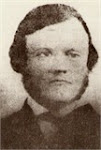Some 'crime novels' (detective stories/police procedural/noir mystery) that are a little out of the mainstream, but very good reads.

The Confession, Olen Steinhauer's second novel set in an unnamed post-war Eastern European country, is a complex multi-layered work - part police procedural, part erotic romance, part noir mystery, part reflection on totalitarian excesses. That's a lot to fit into 326 pages, but Steinhauer deftly manages to pull it off.
Steinhauer pulls the various strands of the story together. His close examination of the brutality inside a forced labor camp for political prisoners is both chilling and brilliant. The closing forty pages were as good an ending as I have read in quite some time - a 'wow'. Highly recommended.

The first book in the Aurelio Zen series. Michael Dibdin introduced Italian police detective Aurelio Zen in the Ratking and carried off the 1988 Crime Writers' Association Gold Dagger Award. An industrialist has been kidnapped in Perugia (Perugia - Wikipedia, the free encyclopedia) and the powers-that-be want a high-powered detective sent up from Rome to solve the crime. In mad rush of bureaucratic CYA, the police in Rome dispatch Aurelio Zen. The joke is that Zen is a has-been, blamed for the bungled end of the Aldo Moro kidnapping some four years earlier. Dibdin, however, does not stop with a mere police mystery, but develops a multi-layered story. He presents a largely dysfunctional Italian society where few people work much or very hard, certainly no more than absolutely necessary.

Fate declared that Imre Kertesz's life, or at least his writing, would be entirely shaped by his teenage experiences as a Hungarian Jew in Auschwitz and Buchenwald. Rather than `fate', perhaps one should refer to the "barbaric arbitrariness of history" (the phrase used by the Nobel Prize for Literature committee in 2002). His other works available in English, 'Fateless /', 'Liquidation /', and 'Kaddish for an unborn child /' reflect his past more directly than `Detective Story'.
Nonetheless, `Detective Story' explores the ability of humans to utterly degrade themselves and others particularly in the service of modern bureaucratic societies. When the liberal democracy in an unidentified Latin American country is overthrown and replaced by a dictatorship, the secret police spy on suspected dissidents, then arrest, torture, and execute them.
Originally written in 1977 and only just published in English in 2008, Kertesz's short but profound work bears obvious relevance to the dangers unleashed when state authority escapes the bounds of legal and moral restraint. Highly recommended.
The Day of the Owl (New York Review Books Classics) by Leonardo Sciascia (Surprisingly not available on Linkcat but see Sciascia, Leonardo)

Sciascia wrote about the mafia at work in Sicily. The NYRB (NYRB home) has reprinted several of his works.
"The most intelligent detective story I have ever read and the ideal introduction to Sciascia's brilliant but little-known oeuvre." — Thomas Wright, Daily Telegraph
Book flap: "This short, beautifully paced novel is a mesmerizing description of the Mafia at work."
















No comments:
Post a Comment